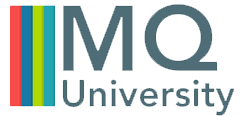Towards Aware and Values-Centered Investing (Jan 2021)
Please note: The course began on Monday, January 18; however, registration is still open!
A Money Quotient University Course
MQU is pleased to offer “Towards Aware and Values-Centered Investing” to a new group of students. This ten-week, five-session course is scheduled to begin on Monday, January 18, 2021!
Purpose
To help financial planners gain an understanding of investment options and tools that are available to help clients truly align their financial and life plans with their values.
Instructor
Description
Click here to watch the first five minutes of Marco’s first lecture. In this video, he discusses his background and motivation, and shares information about the course structure and descriptions of each course session.
Since the financial crisis of 2008, there has been a growing sentiment of skepticism and mistrust aimed at Wall Street and our globalized and opaque financial system. As a result, a growing number of clients and prospective clients are looking for ways to truly align their portfolios with their values, and are dissatisfied with investing all of their assets in the stocks and bonds of large multinational corporations.

This disconnect between personal values and traditional investment choices is becoming even more glaring due to an increased awareness of the role our investments play in shaping the world we live in. Media attention and a number of movements (i.e., Slow Money, Occupy, 350.org, and re-localization movement) are all adding fuel to the fire of discontent with business as usual on Wall Street.
However, an honest evaluation of a majority of the stocks and bonds that comprise a typical socially- or environmentally-responsible portfolio would also fail to make a direct link to the issues and causes that your clients care about most. In addition, even the sincerest and most well-intentioned values-based financial planning process often falls short in the implementation phase.
This course is designed for financial professionals who are ready to engage in out-of-the-box thinking regarding options for clients who want to a) know their investments are doing no harm; and/or b) actively engage in making the world a better place via their investments.
Learning Objectives
Participants who complete the course requirements will:
- Understand the role finance played in shaping the geopolitics of the last five centuries worldwide
- Understand the problems with our current financial system and the role our investments play in creating some of the largest societal challenges we collectively face
- Understand the application of ecological economics techniques to the quantification of the natural capital subsidy to our economic growth and financial returns
- Realize the importance of being aware of the non-financial impact of all our/our clients’ investments
- Understand the money system, the money creation process, the banking sector’s incentives and activities, the role and actions of the central bank, their collective effect on asset class valuations and implications for investing
- Develop a healthy skepticism of traditional capital market expectations and understand the importance of tactical asset allocation especially around time characterized by secular shifts
- Integrate non-financial considerations and clients’ specific personal values into the portfolio management process
- Understanding the importance of an expanded understanding of fiduciary responsibility to include the non-financial impact of clients’ investments
- Introduce the concepts of meta-allocation and regenerative investing component of a client’s portfolio
Course Requirements
Each session of this five-session, ten-week course will include:
- A recorded lecture
- Required reading
- Online interaction with the instructor and students
- Completion of an online learning assessment
This course is self-paced; however, online interaction via a discussion forum will include weekly deadlines. All requirements for each session must completed within the 2-week time-frame. Additional instruction will be included in the on-line Google Classroom platform (login information will be provided upon registration).
Session Overview
(*Note: you are responsible for obtaining your own copy of Sapiens; the other materials will be provided to you via downloadable links.)
Session #1 January 18 – January 31, 2021
Awakening to the Problems of Conventional Finance
Required Reading:
*Harari, Yuval Noah. Sapiens: A Brief History of Human Kind. Harper Collins Publishers 201; Chapter 16: The Capitalist Creed (pp. 305-333)
Key points:
- Understanding the difference between capital and wealth
- Understanding the role finance played in shaping the geopolitics of the last five centuries worldwide
- Understanding the role the invention in the 16th century of the joint-stock corporation played in the imperial and colonial expansion of European nation states
- Understanding the role join-stock corporations played in fueling the transatlantic slave trade
- Understanding the application of ecological economics techniques to the quantification of the natural capital subsidy to our economic growth and financial returns
- Understanding the role our investments play in the erosion of the natural capital and therefore its inability to be sustained even within the typical time-horizon of an average client
- Realizing the importance of being aware of the non-financial impact of all our/our clients’ investments
Session #2 February 1 – February 14, 2021
Understanding Ecological Limits, Money Creation and the Federal Reserve
Required reading:
*McLeay, Radia, Thomas. “Money Creation in the Modern Economy.”
Key points:
- Understanding the hierarchical and hybrid nature of our money system
- Understanding the process of money creation and destruction in a modern economy
- Understanding the mechanism by which lending by commercial banks create new broad money in the economy
- Overcoming the most common misconceptions about money
- Understanding the role the central bank plays in managing the money supply
- Understanding the types of risks limiting the lending activities of commercial banks
- Understanding who determines the amount of base money in a modern economy
- Understanding the effects of Quantitative Easing (QE) by central banks and why it had no effect on inflation
- Understanding the effects of QE on capital market valuations and on the real estate market
- Understanding the impact the exceptionally low interest policy set by central banks on the leverage in the overall financial system and the increase in systemic risk
- Understanding the effects on the stock market of the unprecedented share-bay back by public companies in the US in the last five years
- Understanding the carbon math and the issue of stranded carbon assets and its implication for the proper valuation of clients’ portfolios
Session #3 February 15 – February 28, 2021
Challenging Capital Markets Expectations – A Holistic Approach to Portfolio Management
Required reading:
*The Economist. “The Long and Short of It – Getting It Right in Two Years and Ten.”
*Rich, Nathaniel. “The Lawyer Who Became DuPont’s Worst Nightmare.”
Key points:
- Understanding the relationship between valuations and market returns
- Expanding the understanding and definition of risk and return to include non-financial considerations
- Determining the clients’ liquidity profile and needs
- Understanding the difference between a client’s risk tolerance and her ability to bear risk
- Assessing clients’ abilities to bear risk
- Integrating non-financial considerations and the clients’ specific personal values into the portfolio management process
- Understanding that the compensation for asset classes systematic risk changes over time and can turn negative
- Developing a healthy skepticism of traditional capital market expectations and understanding the importance of tactical asset allocation especially around time characterized by secular shifts
- Understanding the importance of an expanded understanding of fiduciary responsibility to include the non-financial impact of clients’ investments
Session #4 March 1 – March 14, 2021
Implementing Aware Values-Centered Investing
Required reading:
*Vangelisti, Marco. “What returns can we expect from local investing?”
Key points:
- Understanding the common characteristics of the investments belonging to the same asset class
- Understanding the implications of the difference in the rate of growth of the global economy vs. that of financial capital
- Computing risk-adjusted returns of an investment given the probability of its possible return outcomes
- Appreciating the motivations behind local investing
- Understanding the added dimensions necessary to move towards holistic portfolio management
- Defining no-harm investing and impact investing
- Identifying no-harm investments and providing a few examples of them in various asset classes and risk categories
- Identifying impact investments and providing a few examples of them in various asset classes and risk categories
- Guiding clients through the process of building their Personal Investment Compass
- Incorporating holistic portfolio management practices into their own processes
Session #5 March 15 – March 28, 2021
Regenerative Investing and the True Path to Financial Freedom
Required reading:
*Tasch, Woody. Inquiries Into the Nature of Slow Money – Investing as if Food, Farms and Fertility Mattered.
Key points:
- Understanding the importance of soil health for the survival of Homo Sapiens
- Understanding the link between conventional finance and soil erosion
- Identifying regenerative investments and providing a few examples of them in various asset classes and risk categories
- Determine the prudent allocation to regenerative investing based on the client’s ability to bear risk
- Understanding the difference between impact investing and regenerative investing
- Understanding the psychological costs of participating in the positional game
- Understanding the importance of an expanded understanding of fiduciary responsibility to include the non-financial impact of clients’ investments
- Introducing the concepts of meta-allocation and regenerative investing component of a client’s portfolio
Q&A
We will also schedule two live online Q&A sessions with Marco Vangelisti! During these live one-hour sessions, we invite you to share your thoughts and ask questions.
Please note that these are optional sessions intended to supplement the course materials. Attendance is not mandatory, but we strongly encourage your participation.
Specific dates for these sessions are to be determined, but we anticipate scheduling one mid-course, and one shortly before the course concludes.
CFP® CE Credit
6.5 CFP® CE, as accepted by the CFP® Board. Requirements to receive the CFP® CE include the following:
- Watch all five recorded video lectures
- Complete assigned reading as listed above (*note: you are responsible for obtaining your own copy of Sapiens; the other materials will be provided to you via downloadable links)
- Interact with instructor and fellow students via online discussion forum in response to posted topics and questions
- Complete online learning assessments (acceptable passing score is 70%)
Tuition
This MQU course is open to MQ Partners and other financial professionals & financial educators.
| MQ Partners: | $400.00 |
| MQ Diamond Partners: | $200.00 |
| MQ VIP Partners: | $320.00 |
| Full-Time Student | $320.00 |
| Non-Profit | $320.00 |
| Others: | $500.00 |


